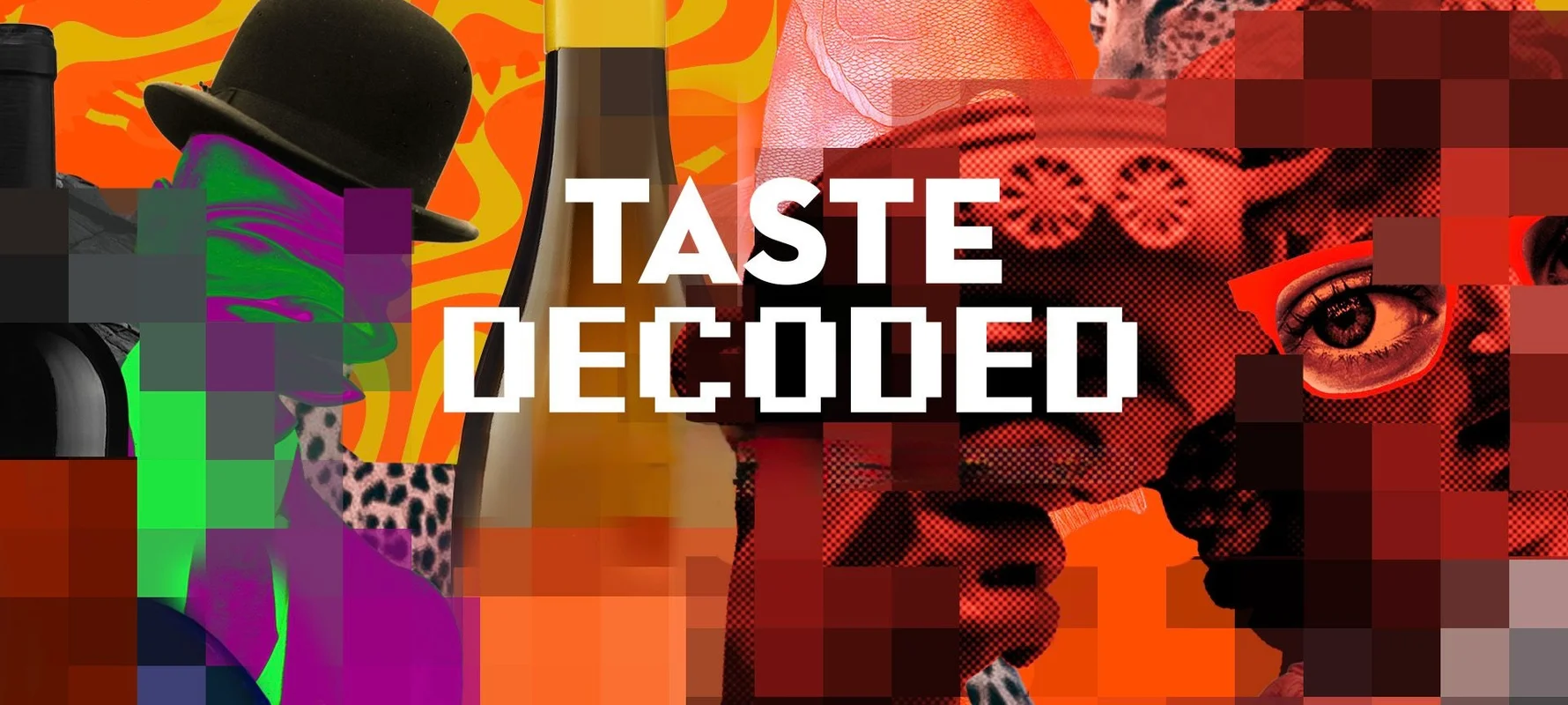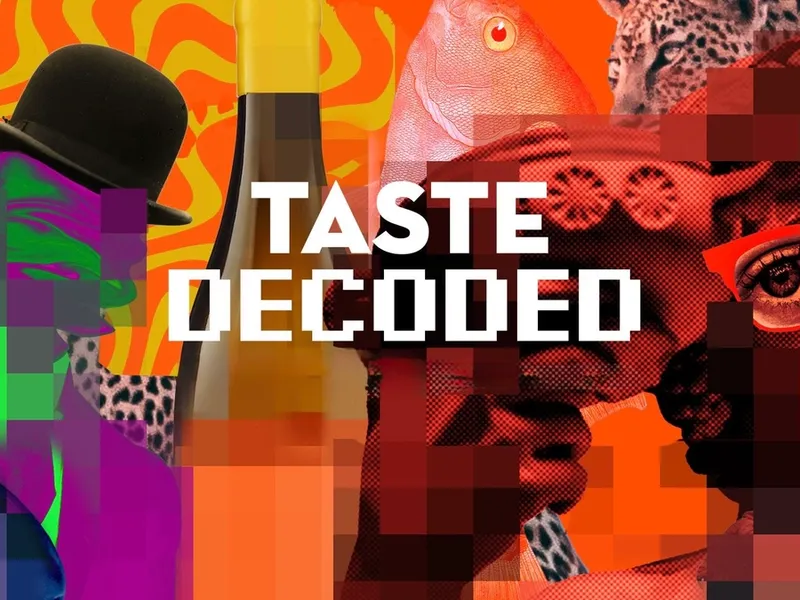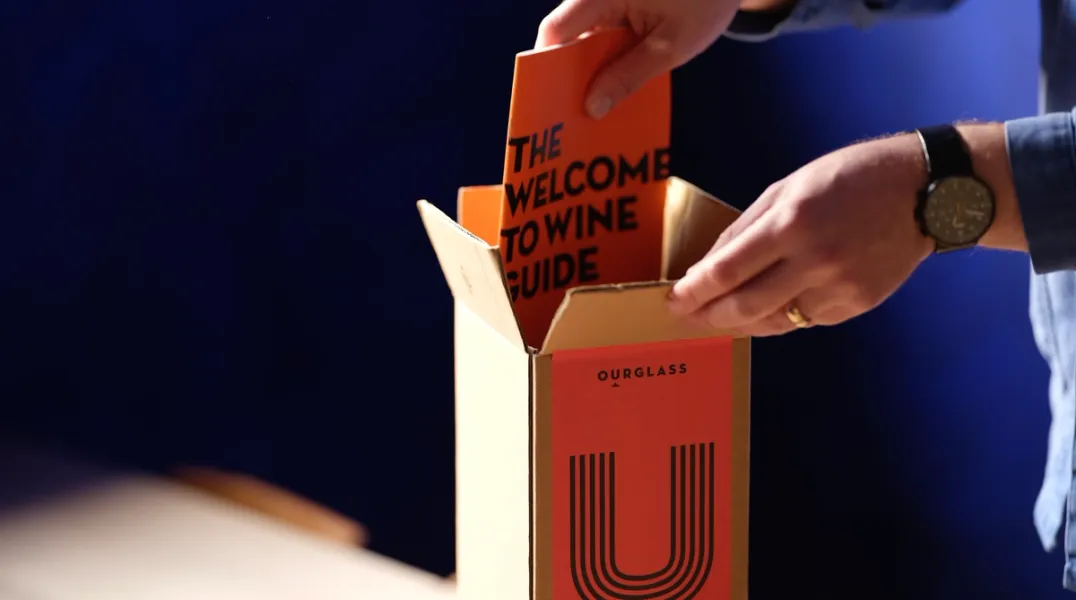

WHAT IS TASTE DECODED
Price does not predict quality. Your palate evolves. Context alters perception. What you drink reveals who you're becoming, not who you are.
This is Taste Decoded - exploring taste through culture, science, and practiced discernment.
The truth: taste is learned, not innate.
WHY IT MATTERS
Wine culture has spent centuries building barriers: obscure language, ritualized etiquette, price-driven hierarchy. These serve the industry, not you.
Taste Decoded exists to dismantle them. Not by dumbing down, but by revealing how context, expectation, and learned skill shape every glass.
The result: You stop being manipulated by price, packaging or peer pressure. You trust your palate, make your own decisions, and drink what brings pleasure - not performance.
This isn't just wine education. This is taste liberation.
THE INTERVIEWS

Rankin
Artist and photographer
"Context is everything. Same subject, different light, different story. Wine is the same."
Ep. 1 Taste instinct first, mind second | Ep. 2 Desert Island Discs is better than a knighthood

Michael Sager
Sommelier and restaurateur, Sager + Wilde
"The question isn't whether natural wine is 'better.' The question is: are you curious enough to understand why it's different?"
Wine Without Dogma | Noma & Natural Wine | Wine & Shared Experience |

Tim Hayward
Chief Food Critic, Financial Times
"Wine pairing isn't about memorising rules. It's about understanding why combinations work."
The Art of Not Writing | Talking Taste, Part 1 | Talking Taste, Part 2 | Talking Taste, Part 3

Amelia Singer
Wine Communicator, ex-The Wine Show
"Forget perfect pairings. Look for interesting conversations between food and wine."
Ep. 1 | Ep. 2 | Ep. 3 | Ep. 4 | Ep. 5 | Ep. 6 | Ep. 7

Max Halley
Restauranteur and Broadcaster, Max’s Sandwich Shop
"The best wine pairing? The one that makes you want another bite and another sip. Everything else is theatre."

Jon King
Lead Singer, Gang of Four
"If you know everything, you end up doing nothing. Taste is alchemy—not science, not rules, not status."
THE FOUR PRINCIPLES
1. Price Is Psychological Theatre
Wine pricing is less about liquid quality and more about perception management.
2.Your Palate is a Moving Target
Taste is not fixed. Palate development is learnt not innate.
3. Context Changes Everything
The same bottle tastes different on holiday than at home. Surroundings are not background – they are ingredients.
4. Taste as Fluid Identity
Your wine choices signal identity – but they need not define it.
THE ESSENTIAL GUIDES
How to Discover Your Wine Palate | How to Become a Wine Expert | How to Choose from a Wine List | Is a Wine Subscription Worth It? |How to Discover Affordable Quality Wines | Getting Dinner Party Wines Right | If You Like That Wine, Try This
Taste Decoded is Ourglass’s ongoing editorial series on wine perception, psychology and culture.
All content is independently produced. No commercial partnerships influence editorial perspective.

Master taste with Oxford's Charles Spence, Ogilvy's Rory Sutherland, photographer Rankin, broadcaster Amelia Singer (DipWSET), sommelier Michael Sager (Sager + Wilde), and critic Tim Hayward (FT).
Play full video
THE ANALYSIS

Taste + Psychology
With Rory Sutherland, Vice Chairman of Ogilvy
Why expensive wine tastes better – even when it doesn't. How scarcity shapes desire. Why pricing psychology may be the most valuable wine education you will ever receive.
The revelation: A £15 bottle served with care can outperform a £50 bottle served carelessly.
14 min | Research-backed | Counter-intuitive
Taste + Money
With Jancis Robinson, Rory Sutherland, Amelia Singer, Tim Hayward, Michael Sager. People are drinking less but spending more. The wine industry calls it premiumisation. We asked whether it's permanent, who it excludes, and what happens when the question was never really about wine.
The revelation: The price on the label matters less than the attention in the glass.
15 min | Multi-contributor | Industry-defining

Taste + Sense
With Professor Charles Spence, Oxford University
Flavour is not just chemistry. Memory, expectation, music, colour and context combine to construct what we taste.
The revelation: The terroir of the environment can matter as much as the terroir of the vineyard.
16 min | Science-backed | Mind-expanding
Taste + Context
With Professor Charles Spence, Oxford University
One bottle. Two nights. A wine that felt sulky on Tuesday becomes electric on a terrace. Both experiences are real.
The revelation: Stop chasing perfect bottles. Start curating perfect contexts.
10 min | Science-backed | Immediately actionable
Taste + Identity
What Your Wine Choices Actually Reveal
The Jura devotee and the Napa loyalist are not choosing different grapes – they are broadcasting different selves. But those signals are flexible, not fixed.
The revelation: Wine preferences are patterns, not prisons. The best drinkers resist labels.
17 min | Psychologically sharp | Self-recognition guaranteed
The Articles
Wine decoded by behavioural economists, neuroscientists, artists, chefs and sommeliers.
Learn how taste actually works.
From Theory to Practice
Understanding taste is one thing. Applying it is another. Our Decanter award-winning subscription delivers bottles chosen to expand your palate systematically – so you taste with confidence.






Taste Decoded FAQ
Wine perception decoded. Featuring contributions from behavioural economist Rory Sutherland, neuroscientist Professor Charles Spence, photographer Rankin, and London's leading wine voices. Each answer explores how psychology, context and culture shape wine taste – and why your palate is trainable, not fixed. For the curious, not the credulous.

Taste Decoded is Ourglass's editorial investigation into wine psychology, science and culture. It features contributions from behavioural economist Rory Sutherland, neuroscientist Professor Charles Spence, photographer Rankin, and leading voices from London's wine and food scene. The series explores how taste works, how price and context shape wine perception, and why taste is a trainable skill, not innate talent.
Taste Decoded features Rory Sutherland (Vice Chairman, Ogilvy), Professor Charles Spence (Oxford University), Rankin (photographer), Michael Sager (Sager + Wilde), Tim Hayward (Financial Times), Amelia Singer (The Wine Show), and Max Halley (Max's Sandwich Shop). Each brings expertise in psychology, neuroscience, craft or wine culture.
Taste is trainable. While genetics influence sensitivity to certain compounds (like bitterness), palate development is primarily a learned skill. Professor Charles Spence's research shows that deliberate practice, pattern recognition and sensory training improve tasting ability. Your brain constructs flavour from memory, expectation and context – all of which you can develop intentionally.
It often doesn't. Rory Sutherland explains that price creates expectation, expectation shapes perception, and perception becomes reality. In blind tastings, expensive wines frequently score no better than mid-priced options. Understanding what makes wine cheap vs expensive reveals that price is psychological theatre – it changes how your brain processes flavour before you've even tasted the wine.
Context alters taste through multisensory perception. Professor Charles Spence's research demonstrates that music changes perceived acidity, lighting affects sweetness, glassware modifies structure, and temperature shifts flavour balance. Your brain constructs taste from environment, not just the liquid. How taste works explains why a wine that tastes sulky at home can taste electric on holiday – both experiences are real.
Traditional wine courses teach grape varieties, regions and how to taste wine. Taste Decoded explores why wine tastes the way it does – the psychology of price, the neuroscience of context, the cultural signals in wine choices. It's investigation, not instruction. Think of it as understanding the operating system rather than memorising the apps.
No. Taste Decoded assumes no prior wine knowledge. The investigations explore universal questions: Why does price influence taste? How does environment change flavour? What do wine choices reveal about identity? These are human psychology and sensory science questions that happen to use wine as the subject. Beginners and enthusiasts both gain insight.
Wine criticism evaluates specific bottles. Taste Decoded investigates how evaluation works. It examines the mechanisms behind taste perception – why blind tastings expose bias, how ritual enhances flavour, why context matters as much as terroir. The focus is metacognition: understanding how you taste, not what to taste. What makes extraordinary wine explores this distinction further.
No – it complements it. Understanding Bordeaux appellations is valuable. Understanding why Bordeaux First Growths taste better when you know their price is equally valuable. Taste Decoded doesn't replace traditional wine education; it reveals the psychological and sensory layers beneath it. Both types of knowledge make you a better wine drinker.
Because price is the largest single factor influencing wine perception – yet it tells you almost nothing about liquid quality. Rory Sutherland's investigation shows that understanding pricing psychology is more useful than memorising vintages. Once you recognise how price manipulates taste, you stop overpaying for status and start discovering affordable quality wines.
Wine culture has historically been exclusive – obscure terminology, intimidating ritual, price as proxy for quality. These barriers serve the industry, not the drinker. Democratising taste means making wine perception transparent: explaining how context, price and psychology shape flavour, so anyone can develop discernment without gatekeeping or snobbery. Five common wine myths debunked explores this further.
Taste Decoded is independent editorial – no commercial agenda. However, both share the same philosophy: taste is trainable, not innate. Ourglass subscriptions curate wine to expand your palate deliberately, applying the principles explored in Taste Decoded (context, variety, intentional development). The editorial informs the curation, but they remain separate.

